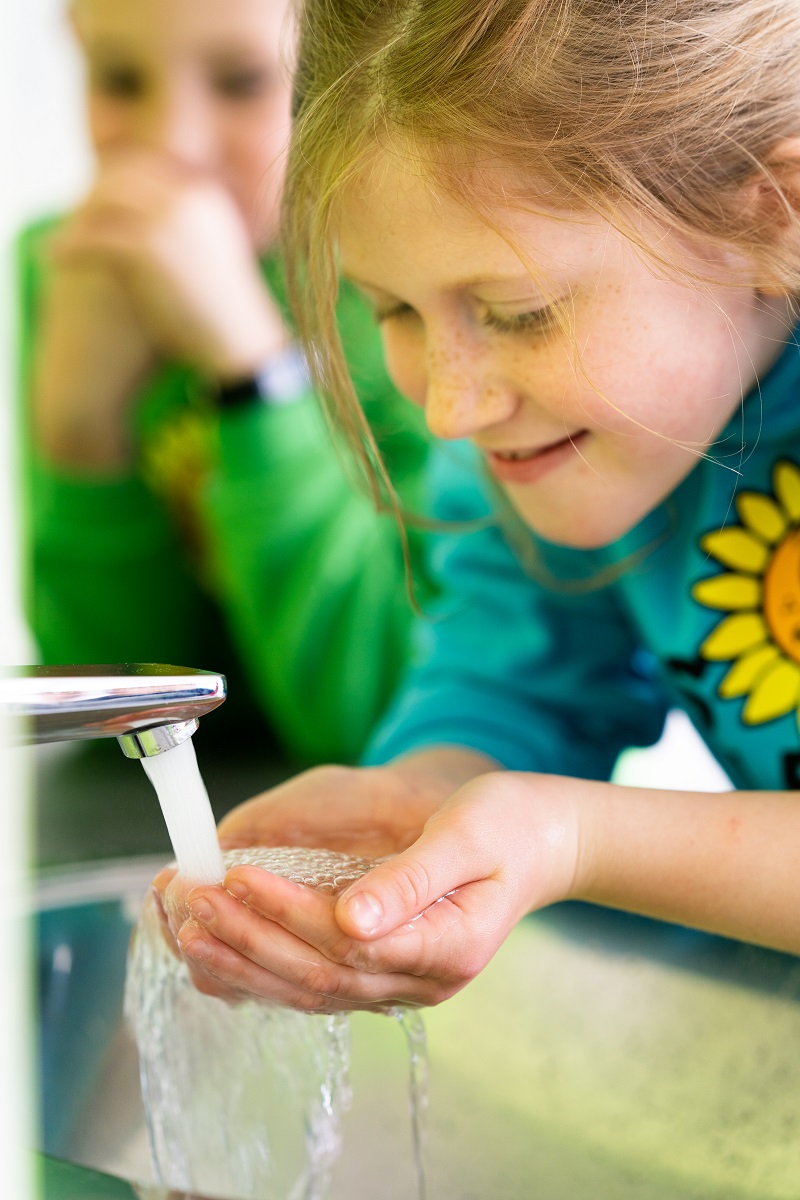Unit 2: Teachers resources – elementary school
Pupils typically spend at least 6 hours at school each day, for many years. Enough time to acquire healthy drinking habits. Habits that will last a lifetime. Access to drinking water und promotion of drinking tap water helps to increase pupils overall water consumption, maintain hydration, and reduce energy intake. In addition, adequate hydration improves cognitive function, which is important for learning success.
Water action day/action week
A joint day or week of action is an impetus to promote drinking water throughout the school. Pupils spend a whole day or week exploring various aspects of water in a variety of ways.
Proposals for actions
- Hold a „drink water poster“ competition
- Come up with a “tap water rap”
- Walk for water
- Write a “Water code” for your school
- Hold a Water Quiz
- Visit the water supplier
- Do water experiments (states of aggregation, hardness of water, what floats - what sinks, water has a skin - surface tension etc.)
- Explore water content of the body
- Hold a water tasting
- Don´t forget: a water break - just drink and relax
- Write fantasy stories (e.g. journey of a drop of water from the spring to your body) or a water poem
- Make music with water (rainmaker, bottle organ, gurgling basin)
- Listening and dancing to water music (e.g. Friedrich Smetana: Die Moldau, Georg Friedrich Händel: The Water Music, Franz Schubert: The Trout)
- Paint with water (watercolors)
- Compose water music (e.g. with Orff instruments)
Raising awareness through intercom announcements and updating the notice board.
Water activities and lessons
The topic of water offers a variety of possibilities for teaching. In elementary school, there is hardly a subject in which water cannot be an issue.
Activity: How much do I drink?
Activity: Drinking rules for my class
Activity: Ice cubes of water, mineral water & distilled water
Activity: How much water is in..?
Activity: Energy content in beverages
Activity: Water content of the body
Activity: Water loss of the body
Fun Facts
- Who drinks the fastest? Camels drink up to 100 liters and more water at once. Nobody else can do that! How fast can you empty a cup of water?
- Camels can live without drinking for several weeks. Humans can not! We can starve for weeks in an emergency, but without water we die of thirst after about three days.
- Where do you feel thirsty? When hungry, the stomach growls. The thirst, however, we feel in the mouth, not in the stomach. The oral mucosa and tongue feel uncomfortably dry when thirsty.
Key points for primary schools
- Pupils have high quality drinking cups or bottles in class.
- Drinking water is allowed during the lesson.
- Drinking breaks are made.
- Teachers also drink water in class (role model).
- Drinking water is actively promoted daily.
- Only water is drunk at school.
- Parents do not give drinks.
- Teacher support water drinking with lessons on the topic.
For schools with lunch:
- Only water is offered as a drink for lunch.
- Water drinking is promoted while eating (for example by setting water jugs).



